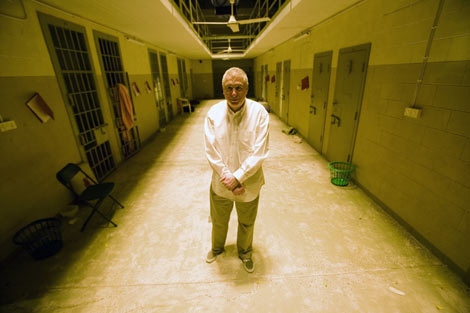On this episode of the podcast, J. Robert Parks talks with filmmaker Errol Morris about his new film, Standard Operating Procedure, then we reconsider the film to see if our comments from Episode 16 hold up in light of the interview, a second viewing, and Morris's writings and public statements.
0:00 Intro
3:52 Interview: Errol Morris
20:13 Interview (continued): "I like trouble"
27:24 Interview (continued): "A problem with my art"
32:42 Rob's Second Viewing
38:12 Depicting Atrocities: Resnais, Lanzmann, Farocki
43:32 External Ideas: The Drop of Blood
44:58 Ambiguous Stance: Morris's Voice
48:36 The Title: Threading the Needle
49:54 Cynical View vs. Benefit of the Doubt
52:14 Give Me Thoughts, Let Me Think
57:01 The Distracting Beauty of Images
1:00:33 Outro
Correction
In the spirit of J. Robert's introduction, I have a correction of my own. During the post-interview discussion, when talking about the depiction of atrocities in film, I referred to Harun Farocki's Respite, saying that it was about a Nazi concentration camp in Poland. My brain went east, but the Nazis went west. Farocki's film is actually about Westerbork, a camp in the Netherlands, sometimes called Dutch, as in: "I'm in Dutch with the fact-checkers. Having a wonderful time. Wish you were here."
Related Links
Some of our discussion is about whether Standard Operating Procedure contains Morris's essential ideas about Abu Ghraib or whether it hints at them without committing. Outside of the film, Morris has said a great deal about the subject. For example:
- Errol Morris has an excellent blog at the New York Times, but his posts are more like the lengthy reports of an investigator. In particular, see his essay on re-enactments — part 1 and part 2 — and his post on Sabrina Harman's smile. In the latter, dated May 19, Morris explicitly argues that Harman's smile helps to deflect attention from the far more serious crime of murder, perpetrated by a CIA interrogator. He doesn't make this case in the film, or at least not very clearly. His post also quotes passages from his interviews that are not in the film.
- Philip Gourevitch's book on the Abu Ghraib photographs is based on material unearthed by Morris, only some of which shows up in the film. (I've not yet seen the book.)
- Cathy and Erin at Show Me Your Titles discuss Morris's film, then Erin has an illuminating talk with Morris. (The discussion is up front; the interview begins at minute 51.) In the interview, Morris says categorically that Sabrina Harmon is a scapegoat and that in a different context she might have won a Pulitzer Prize. I agree, but it's hard to come to that conclusion from watching his film. (I heard this podcast after the discussion I had with J. Robert.)
- Have I neglected to link to the trailer? Nope! The music therein comes from Serenada Schizophrana.
